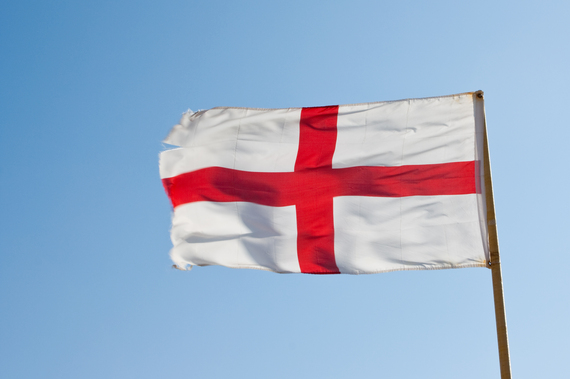Downton Abbey won.
The surprise triumph of Britain's Conservative Party was driven by English nationalism. Not British nationalism -- English nationalism. St. George's Cross and all that.
The election saw an English backlash against the surge of Scottish nationalism that produced a sweeping victory for the Scottish National Party, which won 56 out of 59 seats in Scotland. For the Labor Party, the result in Scotland was not a landslide. It was an avalanche. Labor went from 41 seats in Scotland to exactly one. It is hard to see how Labor can survive as a national party without its historic base in Scotland.
The polls are being called the big loser in the election, but in one sense, the polls drove the election. The polls predicted dramatic gains for the Scottish Nationalists. The result was to create a backlash among ethnically English voters. They saw special benefits and privileges for Scotland as an impending threat. As a result, English voters were driven into the arms of the Conservatives. The Church of England, after all, has long been called "the Tory Party at prayer."
Some are saying the economic recovery generated the Conservative victory. It's true, Britain has done better than other European countries in pulling out of the recession. But the recovery in Britain is like the recovery in the United States. Most voters aren't feeling it. The major impact in both countries has been a sharp increase in inequality. Which should have helped the Labor Party. It didn't.
You can't really say the election was a vote of confidence in the Cameron government. Cameron's government was a coalition of Conservatives and Liberal Democrats. But only one of those parties made gains. Liberal Democrats were humiliated, going from 47 seats in the House of Commons to eight.
Much is also being made of the fact that the Labor Party moved to the left under the leadership of Ed Miliband, ditching a lot of Tony Blair's "third way.'' Labor's lurch to the left may have contributed to its defeat, but keep in mind that the Scottish Nationalists are to the left of the Labor Party on most issues, and they enjoyed a huge victory.
The British election seems to have been driven not by economics, but by culture. Sound familiar? The cultural division that emerged in the 1960s are what defines polarization in the U.S. In Britain, it's more a matter of ethnic nationalisms, specifically between the English and the Scots. The economy may have had something to do with it. The European recession and the bone-headed austerity policies imposed by most European governments have driven European voters to support separatist and ethnic nationalist parties everywhere.
True, the most extreme English national party, the anti-immigrant U.K. Independence Party, did terribly on Thursday. But that's because English nationalists have a comfortable home already in the Conservative Party. After all, David Cameron has promised to hold a referendum on British membership in the European Union in 2017. That helped satisfy the Little Englanders.
Tensions between England and Scotland are likely to increase. The Scots did vote against secession last year. But the Scottish Nationalists are committed to keeping the dream of independence alive. Moreover, the Conservative Party is deeply unpopular in Scotland (Conservatives hold just one seat). The Scots will be extremely unhappy to be governed by David Cameron for another five years. The 2015 election could pave the way for two nightmare scenarios: Scotland out of the United Kingdom and the United Kingdom out of Europe. Downton Abbey will still be there, but it will be smaller and shabbier.

